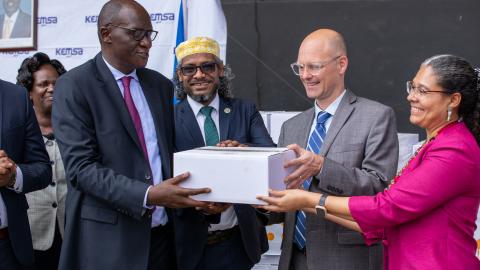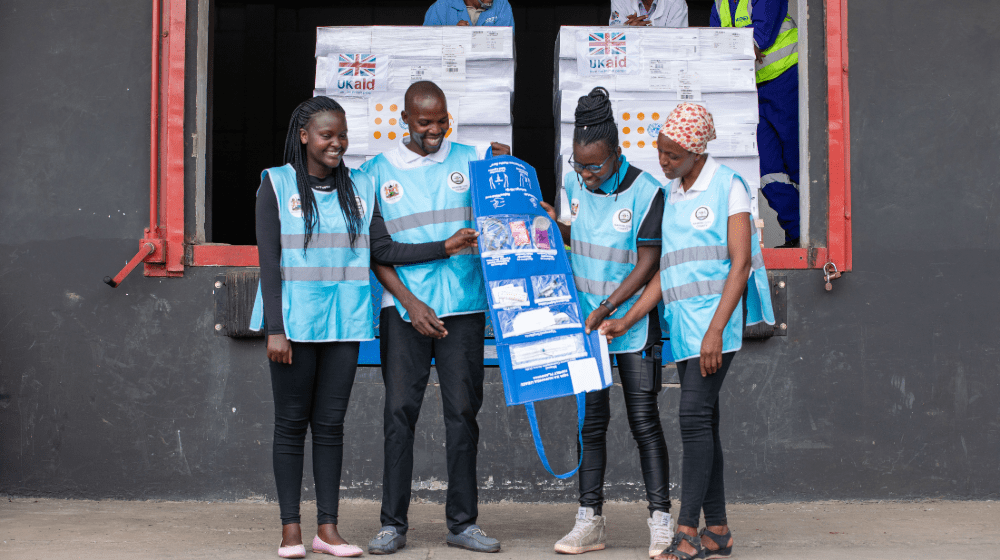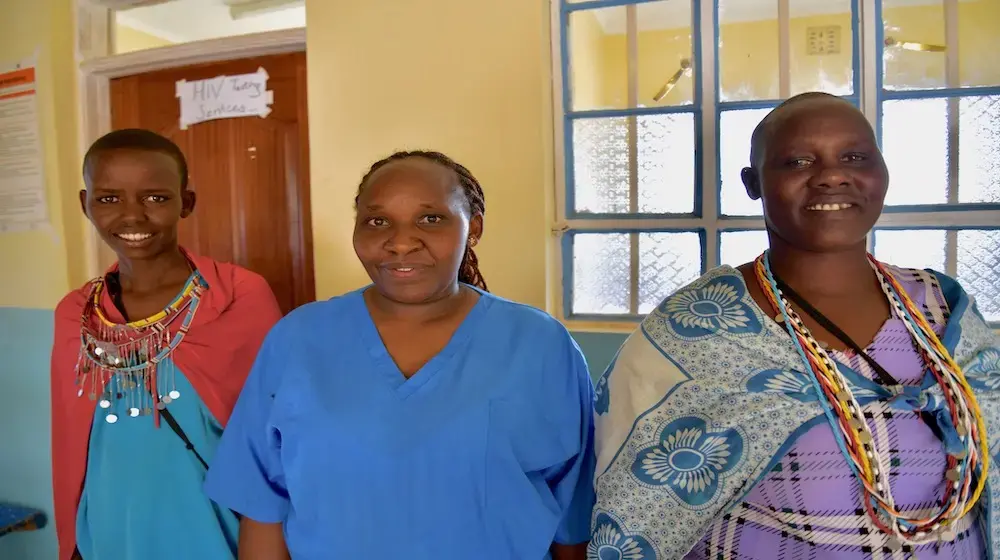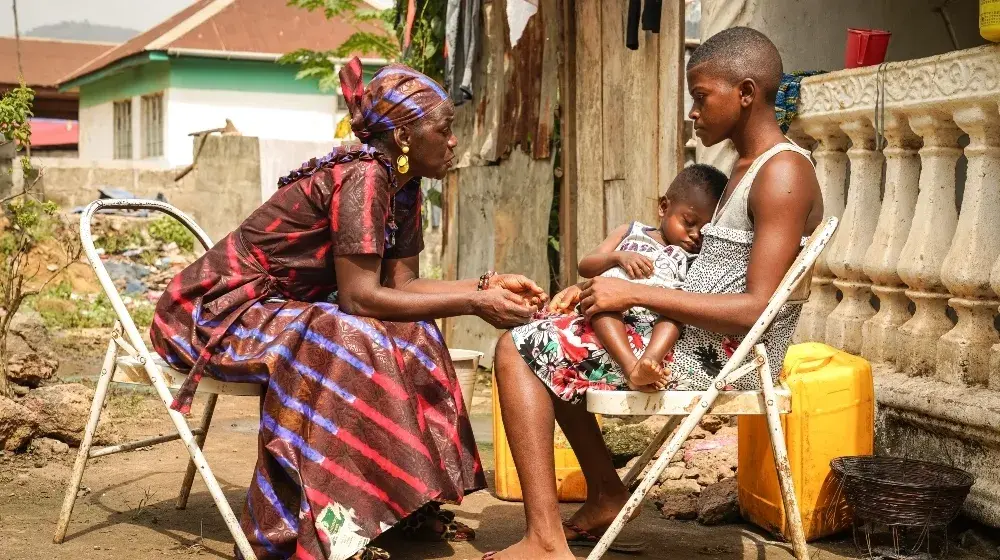Efforts to make family planning more accessible to women in Kenya received a boost today with the handover of 450,000 doses of Subcutaneous Depot Medroxyprogesterone Acetate (DMPA-SC), a self-injectable contraceptive that simplifies and enhances the accessibility of family planning. The contraceptives were procured by UNFPA with more than 57 Million Kenya Shillings (£348,000) funding from the UK Government, and will be distributed by the Ministry of Health to health facilities across the country.
DMPA-SC is a user-friendly injectable contraceptive that can be administered by trained individuals, including community health workers and women themselves, thereby expanding access to family planning beyond traditional healthcare settings.
Ag. Director General of Health Dr. Patrick Amoth received the supplies at the Kenya Medical Supplies Authority (KEMSA) warehouse in Nairobi. “The integration of DMPA-SC self-injection into Kenya's reproductive health landscape is part of broader reproductive health self-care initiatives aimed at improving service delivery. These will support the Government’s efforts to increase access to family planning in line with global trends toward self-care interventions,” noted Dr. Amoth.
Kenya has made significant progress in promoting access to family planning, with the modern contraceptive prevalence rate rising to 57% in 2022, up from 53% in 2014. During the same period, the unmet need for family planning was reduced from 18% to 14%. Despite this progress, barriers such as the high financial cost of access and uncertainty over supply hinder efforts to meet the demand for family planning.

Deputy Development Director at the British High Commission, Eduarda Mendonca-Gray during the handover ceremony
Deputy Development Director at the British High Commission, Eduarda Mendonca-Gray noted that sexual and reproductive health and rights remain a key priority for the UK. "The evidence confirms that access to and availability of family planning commodities reduces poverty, it enhances prosperity and provides dignity for women. Since 2010 we have been supporting family planning efforts in Kenya and we remain committed to working collaboratively. We will continue working with the Health Ministry to empower women to plan for their lives and future, and to decide when to have children by choice not by chance,” she said.
The UK government has been a longstanding partner of UNFPA and the Government of Kenya in efforts to ensure Kenyan women and girls have access to sexual and reproductive health information and services.
“Funding for the family planning program is a vital component of the support we receive from the UK government, as it ensures that women can access and choose from a range of quality family planning methods, no matter where they live in the country," said UNFPA Representative Anders Thomsen. This in many ways, helps us deliver on the commitment to end preventable maternal deaths,”
In 2023, UNFPA supported the Ministry of Health in expanding access to family planning commodities and services in Kenya by procuring a range of family planning methods distributed to over 6,000 health facilities across 47 counties. These commodities served over 2.5 million women of reproductive age.
The consignment of DMPA-SC contraceptives handed over today will be distributed to health facilities through KEMSA. The contraceptives are expected to benefit over 400,000 women of reproductive age, contributing to the prevention of 42,750 unintended pregnancies and 122 maternal deaths.





